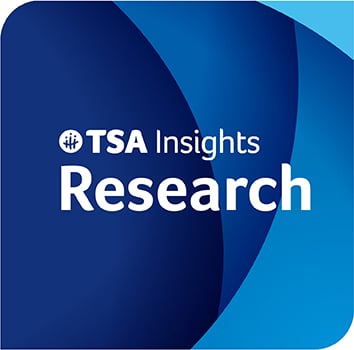Outcomes of epilepsy surgery on TSC-Associated Neuropsychiatric Disorders (TAND) in TSC
About this study
TSC is often associated with epilepsy and a variety of neuropsychiatric conditions collectively referred to as TAND (TSC-associated neuropsychiatric disorders). These can include autism spectrum disorder (ASD), intellectual disabilities, and behavioural problems, significantly affecting the quality of life for people living with TSC.
This study investigated the long-term impact of epilepsy surgery on TAND outcomes in children with TSC. While previous research has shown that controlling seizures through surgery can lead to better cognitive and developmental outcomes, its effect on long-term neuropsychiatric disorders has not been thoroughly explored. This study aimed to fill this gap by comparing TAND outcomes between children with TSC who underwent epilepsy surgery and those who did not.
How the study was conducted
The researchers retrospectively identified children with TSC and DRE (drug-resistant epilepsy) who were younger than 18 years at epilepsy onset. They created two groups:
- Study group (surgical): Identified from the Swedish National Epilepsy Surgery Registry. This included 17 children who had undergone surgery.
- Reference group (non-surgical): Identified from medical records of a tertiary hospital in Southern Sweden. This included 52 children who had not undergone surgery.
Both groups were balanced for factors like age at seizure onset, age at follow-up, and sex to ensure fair comparison. Participants completed a validated TAND lifetime checklist to assess their neuropsychiatric symptoms. After balancing, each group had 13 participants.
The average time from epilepsy onset to completing the survey in the study was 18.5 years for the surgical group and 16 years for the non-surgical group. For the surgical group, the average time from surgery to survey was 13 years.
Outcomes of the study
The study found no significant differences in behavioural problems, autism spectrum disorder symptoms, or intellectual disabilities between the surgical and non-surgical groups. However, individuals who were seizure-free performed better in social skills, intellectual skills, and overall TAND scores, compared to those who were still experiencing seizures.
Conclusions of the study
The study suggests that epilepsy surgery does not negatively impact TAND outcomes in children with TSC. Importantly, achieving seizure freedom through surgery is associated with improved neuropsychiatric outcomes, highlighting the benefits of seizure control beyond a reduction in seizure frequency.
Implications of the study
This study provides valuable insights for health care providers and families/caregivers, suggesting that epilepsy surgery can be a viable option for managing drug-resistant epilepsy in children with TSC without worsening TAND outcomes. It also underscores the importance of seizure control in improving overall quality of life and neuropsychiatric outcomes for these patients.
Further research with larger sample sizes and done before and at the time of surgery is necessary to confirm these findings and provide more robust evidence on the long-term impact of epilepsy surgery on TAND outcomes.
Pearsson K, Eklund EA, Rask O, Compagno-Strandberg M. Seizure freedom but not epilepsy surgery is associated with fewer neuropsychiatric difficulties in patients with tuberous sclerosis. Epilepsy Behav. 2024 Jun 1;157:109875. doi: 10.1016/j.yebeh.2024.109875. Epub ahead of print. PMID: 38824750.
Full paper available at: https://doi.org/10.1016/j.yebeh.2024.109875
DISCLAIMER
This information is intended to provide some insights into recent TSC-related research. It is not intended to, and it should not, constitute medical or other advice. Readers are warned not to take any action without first seeking medical advice.

